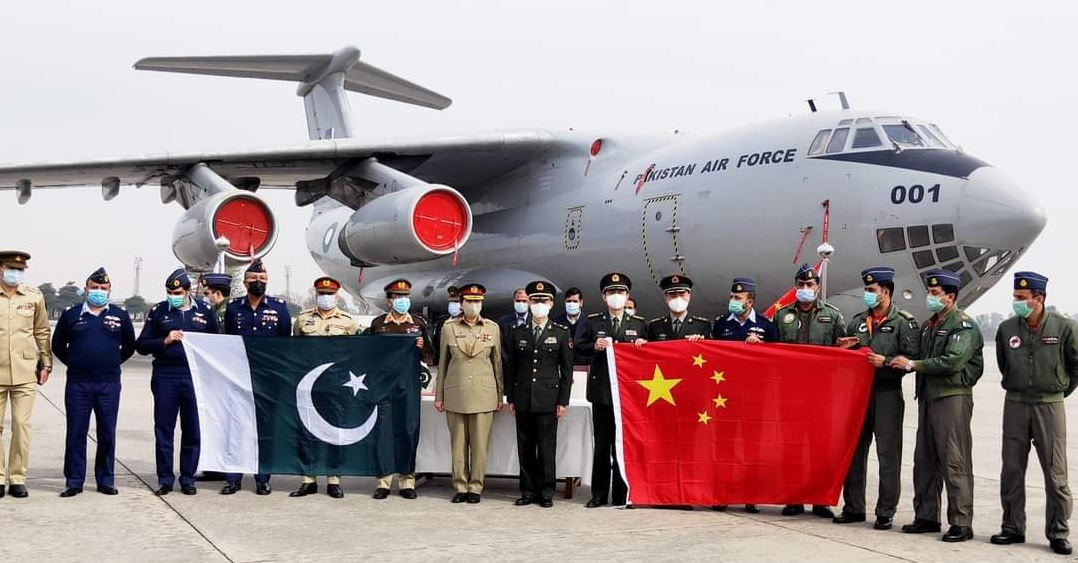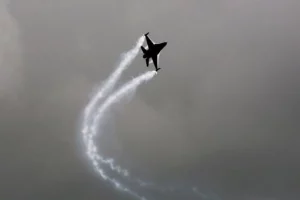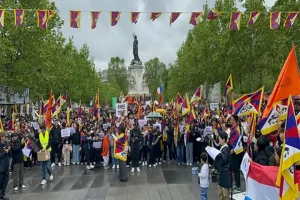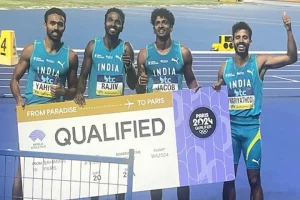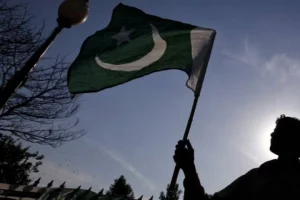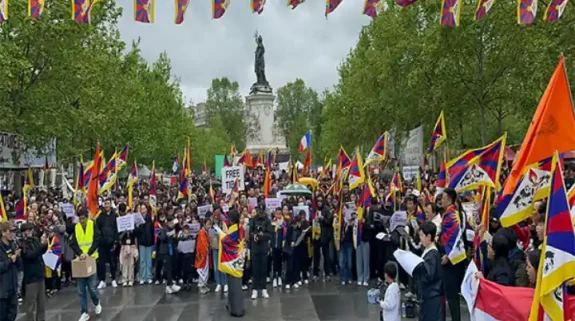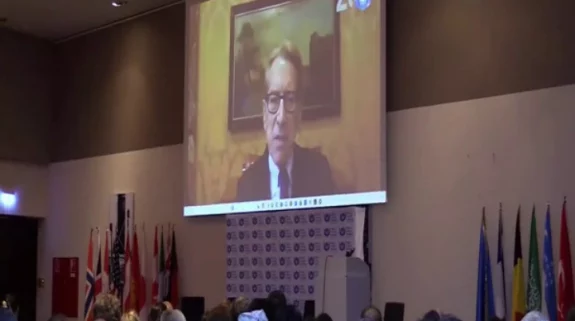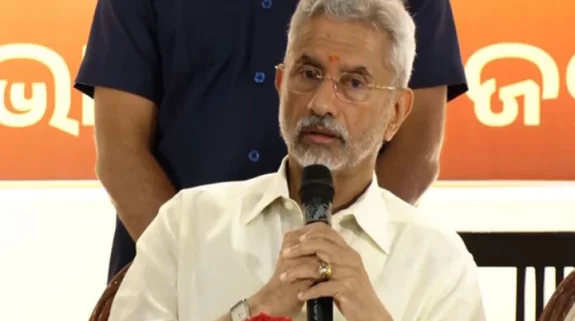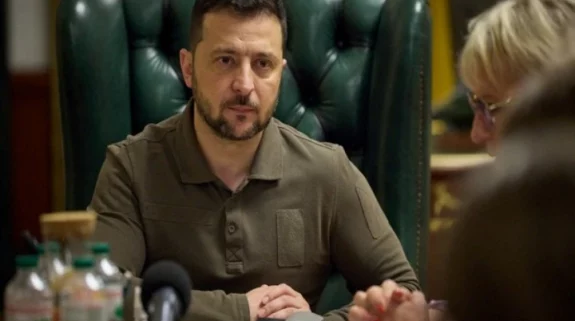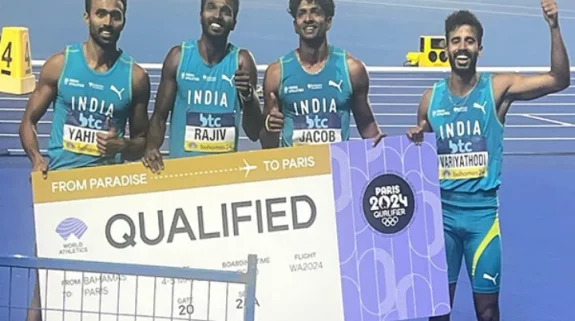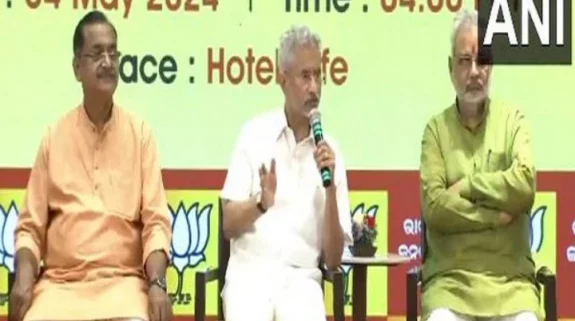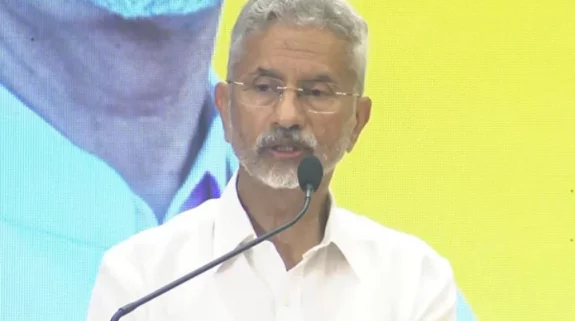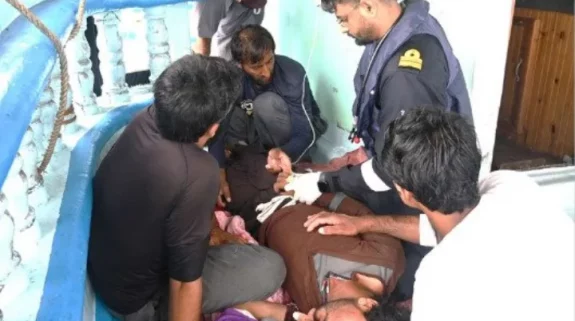As part of its 'iron brotherhood' policy with Islamabad, China has sent special stocks of Covid-19 vaccines for Pakistan’s defence forces. After receiving 500,000 doses of vaccine produced by Sinopharm from the Chinese government on February 1, another Pakistan Air Force plane having taken off from the Chinese mainland landed at the Nur Khan Airbase near capital Islamabad Tuesday, this time bringing vaccine supplies from the Chinese military.
Major General Chen Wenrong, defence attache of the Chinese Embassy in Pakistan, and Pakistani Lieutenant General Nigar Johar Khan, surgeon general of the Pakistan army, attended the military-to military vaccine handover ceremony at the airbase.
"All these have demonstrated the unbreakable friendship between the two iron brothers. This batch of Covid-19 vaccines will play an important role in the cooperation between two countries and two militaries to fight the pandemic," Chen said.
Faisal Sultan, the Special Assistant to Pakistan Prime Minister Imran Khan on National Health Services, said that the vaccines sent by the PLA to Pak Armed Forces has been dedicated in its entirety for use in national vaccine drive to protect health workers on the frontline.
Pakistan, it has been learnt, has asked China for another one million doses of the vaccine- a request Beijing is expected to honour as the 'vaccine diplomacy' with its all-weather ally has a lot more to do with its own economic and strategic interests in the region than to fight the pandemic together.
In return, Beijing expects Imran Khan government to quickly remove all the roadblocks and ensure fast-paced execution of various projects related to the China-Pakistan Economic Corridor (CPEC) – a flagship of its Belt and Road Initiative (BRI).
The pressure is already showing. Even as the opposition is raising slogans like "Bijli chor, aata chor aur cheeni chor" (electricity, flour and sugar thieves) in the National Assembly – and CPEC continues to be referred to as a massive debt trap for Pakistan by many – the ruling government is going full steam ahead to convince its Chinese friends that things have indeed gathered pace from Gilgit to Balochistan.
On Wednesday, Pakistan and China agreed on early launching of country's first and biggest transport sector project — Main Line-1 (ML-1). The USD 6.8 billion project under CPEC will be carried out in four Pakistani provinces from Peshawar to Karachi.
"Had a productive discussion on promoting railways system reform and expediting the implementation of ML1," Nong Rong, the Chinese Ambassador to Pakistan, tweeted today after a meeting with Pakistan's Railways minister Azam Khan Swati.
It was announced Monday that work on Thar Coal Block-1 project, another mega CPEC highlight, too is making rapid progress in Sindh province.
Pakistan is also seeking Chinese partnership in building a coastal refinery and petrochemical complex worth $8-9 billion in Balochistan. The project will be proposed during the 10th Joint Cooperation Committee (JCC) meeting of CPEC.
"With the development of the CPEC and the implementation of the Second Phase Protocol of the China-Pakistan Free Trade Agreement, China’s new economic leap will bring a larger market and deeper cooperation potential for Pakistan, and lays a more solid material foundation for upgrading China-Pakistan practical cooperation," Nong wrote in a piece titled 'The New Leap of China's Economy benefits China-Pakistan Cooperation' on the embassy website last week.
The Chinese Ambassador said that Beijing will "speed up the high-quality development" of CPEC as the two nations celebrate the 70th anniversary of the establishment of diplomatic relations.
The 'speeding up' has a lot to do with the growing opposition in Pakistan to various CPEC projects.
Last month, members of the entire opposition had staged a walkout from the senate session after lack of satisfactory response from the government on key issues related to the corridor.
Muhammad Javed Abbasi, a politician from the Pakistani Muslim League-Nawaz party and Jamaat-i-Islami Senator Mushtaq Ahmad had raised objections over the "corrupt" and "controversial" CPEC Chairman Asim Saleem Bajwa meeting the Chinese ambassador even after the CPEC Authority Ordinance had lapsed.
Leading Pakistani daily Dawn reported how on February 1, the Imran Khan government hurriedly passed three bills, including the one seeking establishment of the CPEC Authority, amid ruckus by the opposition members.
Clearly, the "China-Pak dosti" referred by Ambassador Nong is now being questioned by many Pakistanis which also explains Beijing's uneasiness and urgency to speed up CPEC projects and accumulate more control and power in the country. The planeloads of vaccine aid could all be part of the game.






